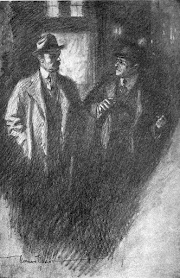Charlie and the Chocolate Factory Summary
Charlie and the Chocolate Factory, written by Roald Dahl, is a beloved children's novel that captures the imagination of readers through its whimsical storytelling, vivid characters, and moral lessons. Published in 1964, the story of Charlie and the Chocolate Factory has since become a classic, enchanting generation of readers with its magical world of sweets and eccentricities.
The story is set in a small, impoverished town and revolves around a young boy named Charlie Bucket. Charlie lives with his family, including his parents and all four grandparents- Grandpa Joe, Grandma Josephine, Grandpa George, and Grandma Georgina. The whole family lived in a cramped and dilapidated small wooden house. Charlie’s father was the only one in the family with a job. He worked in a toothpaste factory, but his earnings were too low to support his large family. Despite their difficult circumstances, the
Buckets are a close-knit and loving family. They find joy in the simplest things and share their limited resources, emphasizing the importance of familial bonds and contentment. However, Charlie was a die-heart chocolate lover, and he used to long for them more than anything else. Only, once a year on his birthday, he used to get a small bar of chocolate. The most torturous thing for a little boy was to see an enormous chocolate factory every day that was within sight of his house. It was the largest and most famous in the whole world, and the little boy wished to go inside the factory to see what it was like.
Apart from Charlie, the other main character of the story is Mr. Willy Wonka, an extraordinary chocolate maker who owns the renowned Wonka Chocolate Factory. He is a magician with chocolate as he can make anything from chocolate ice creams, and rich caramels to marshmallows, blue bird’s eggs, chewing gums, and much more. However, the factory has been closed to the public for almost 10 years due to the secretive nature of Wonka's work. The excitement begins when Willy Wonka announces in a paper that his factory is to be opened at last to a lucky few children.
In the bulletin, Willy Wonka announced a contest stating that he had hidden five golden tickets inside his chocolate bars, and the 5 lucky finders (only children) of these tickets would get to visit his factory and a lifetime supply of chocolate and sweets.
The story takes an exhilarating turn as the world reacts to the discovery of the golden tickets. The winners include Augustus Gloop, a fat boy who loves to eat; Veruca Salt, a spoiled and entitled girl with rich parents; Violet Beauregarde, a competitive and gum-obsessed child; Mike Teavee, the television fiend kid; and, of course, Charlie Bucket. All the lucky finders were asked to visit the factory along with one of their family members. Each of these children brings their flaws to the forefront, allowing Dahl to satirize societal issues and individual shortcomings playfully.
As the fortunate ticket holders gather outside the factory, they are greeted by the great Willy Wonka himself, a charismatic yet peculiar figure. He leads the children and their parents through the factory's imposing gates, into the chocolate room and the story truly comes alive as readers are transported into a world of unimaginable wonder and sugary delights. After entering the chocolate room, the children and their parents were too stunned to speak. They were completely bowled over by the hugeness of the whole thing. They simply stood and stared. The factory is a place of pure imagination, featuring a chocolate waterfall, a river, an edible mushroom garden, a room with lickable wallpaper, and the magical Oompa-Loompas, small-sized workers imported directly from Loompaland who assist Wonka in his creations.
One by one, the children's wicked behavior leads them into trouble. Augustus Gloop falls into the chocolate river while scooping hot melted chocolate; Veruca Salt is thrown out for her insatiable demands, such as wanting to take an Oompa-Loompa home, a boat, chocolate river, and so on; Violet Beauregarde turns into a blueberry after chewing an experimental gum; and Mike Teavee is shrunk to just inch tall by a television teleportation tool. Dahl's imaginative punishments for each child highlight the consequences of their wrongdoings, while the Oompa-Loompas' catchy songs add a whimsical touch to their moral lessons.
Throughout the tour, Charlie demonstrates his humility, gratitude, and appreciation for the marvels he encounters. Despite the temptations and challenges presented by Mr. Wonka, he remains grounded and true to his values. His honest interactions with Wonka showcase his goodness, and in return, Wonka sees in Charlie the potential for a worthy successor to his legacy.
The climax of the story arrives when Wonka offers Charlie the ultimate prize—a chance to inherit the chocolate factory and continue his legacy. The novel ends with Mr. Willy Wonka bringing Charlie's family to live in the factory.









0 Comments